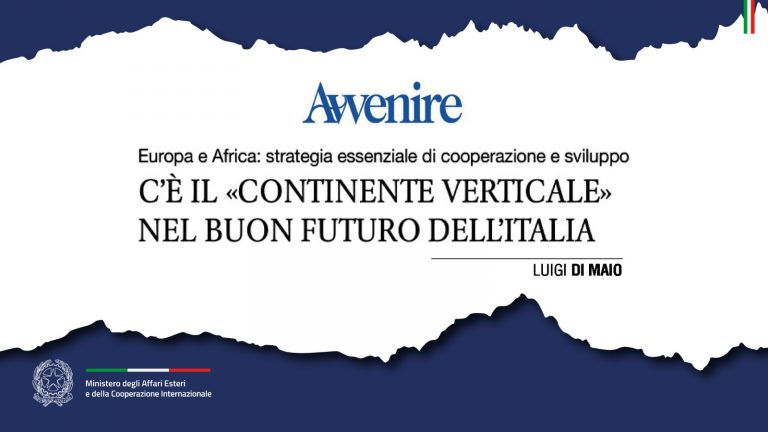Angelino Alfano, Minister of Foreign Affairs and International Cooperation, has reflected on the challenges that lie ahead for Italian cooperation. Setting aside political current affairs, the crazy attack on Westminster, the terrorism emergency, the Treaties of Rome, the minister spoke for 40 minutes about what the goals of the next three-year period will be. He looked at how to interconnect humanitarian emergencies, migration crises and the challenges posed by the UN agenda for 2030.
He explained that by focusing on development aid, it would be possible to find solutions to the critical question of immigration. “The Mediterranean and Africa must be the focus of our action. It is there that [we find] the key challenge of the 21st cent. By helping them, we help ourselves…” He lowered his voice while pondering his latest meetings with African leaders; the summits in Tunisia and meetings held at the Farnesina on Libya. “I remember their messages well, their pleas: ‘Either you change everything or they will all come to you.’ When they are hungry, they set out on a journey. The point is that we must engage in seeking solutions. In some African countries something seems to be changing for the better, but we must all do our share.” The minister stopped for a moment and soon resumed: “We have done our share. The new Fund for Africa we launched two weeks ago is specially focused on Libya, Tunisia and Niger, but includes other important countries such as Ivory Coast, Eritrea, Egypt, Ethiopia, Ghana, Guinea, Nigeria, Somalia, Senegal and Sudan.”
Tell us more about the Fund for Africa
It is endowed with 200 million euros in projects pursuing a single goal, i.e. uprooting human trafficking to stop the flow of irregular migrants. Once again we have acted with a view to being rigorous as well as humane and the results we have obtained, from the point of view of security, pay testimony to the accuracy of our decision. The approach is the right one: we expelled radicalised migrants ahead of sentences being issued by our magistrates and we have been the “world champions” in saving lives at sea and receiving those fleeing war and persecution. Security and solidarity can coexist; they must proceed together.
When we talk about Africa and cooperation as a means to curb immigration, we think of the work you started in Niger.
That’s right. Niger is a crucial hub and soon I will sign an important agreement, enhancing border control along their frontiers, which means indirectly strengthening control on European borders.
Italy is doing its utmost, but Europe keeps on looking the other way.
For once let’s concentrate on what works, on our advances, on the goals we have accomplished. There is a new outlook which is spreading across European countries and I hope it will be contagious. Thanks to our Migration compact, the question of immigration is now part of the Union’s agenda. But it is not enough, there is more. The European commitment must grow in parallel with the determination of the countries receiving our contributions. They as well must do more. They must engage more forcefully in containing migration flows. Within the union, talks about more for more are giving way to a less for less approach. It is like saying: more engagement, more resources.
Minister Alfano, many people are saying that Cooperation budgets are not what they should be
No, this is not true. The government is committed and will remain committed. There are and there will be resources, the truth being that funds have been growing for a while. Aid reached 3.6 billion euros in 2015, up from 2.1 billion euros in 2012. We are not lagging behind. Among the G7 countries, we rank fifth ahead of Japan and the US. We are planning to [have reached] 4.3 billion euros in 2016 in order to be able to fulfil the ambitious goal set by the UN 2030 agenda. The funds are not the issue, but rather the tragic migration crisis, humanitarian emergencies and the speed of the decision-making process.
Two years and a half have elapsed since the reform of Cooperation was approved. Is it possible to make a first assessment now?
We have honoured the commitment we undertook at the World Humanitarian Summit in Istanbul, calling for an increase in humanitarian emergency aid: a 34% increase was recorded in 2016. We complied with our political and financial commitment we agreed on at the London Summit on Syria, earmarking 45 million euros. Our system today is among the most advanced and more innovative mechanisms in the world. We also succeeded in expanding cooperation between public and private sectors. Having Cassa Depositi e Prestiti in our system will allow us to establish a guarantee fund. But we will not stop there.


